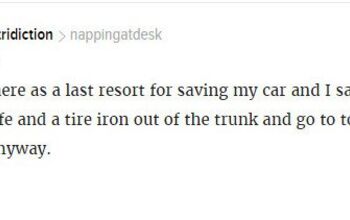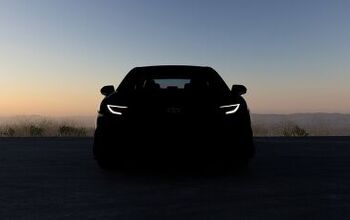Car Dealers Are Not All Greedy Bastards
People in business for a quick buck give everyone else in their field a bad name. They fully deserve the reputations they receive. More than a few CEO’s and their boards have ruined— are ruining– their companies by combining short term thinking and personal greed. To expedite their demise, more people should vote with their feet, and avoid mindless profiteers. That said, take it from the manager of an average sized Honda store: not all car dealers are crooks.
Before I argue my point, take a look at Honda invoice prices at KBB and Edmunds (our customers do). Clock the difference between dealer invoice and what the site says you should pay. Then consider the cost of opening a dealer’s doors every day; from heat and light to payroll to bathroom tissue. Running a car dealership— even one as successful as ours– makes a savings account look like a sweet investment.
Our geographical area is currently experiencing astounding growth rates. Despite the enormous amount of footfall on the showroom floor (and the need to keep the wolf from our door), despite the temptation of making hay while the sun shines, we stick to our basic values. Respect the customer. Don’t swing for the fences; if you miss, you’re out, and you look like an ass in the process. Play it straight, play it safe and get on first. Put another way, a little of something is better than a lot of nothing.
When a hot product like the Civic Si or new CR-V hits the showroom floor, I do not allow the sales staff to charge over the Manufacturer’s Suggested Retail Price (MSRP) to customers who “gotta have it now, no matter what.” We only accessorize showroom cars for the sake of selling; we don’t cram high-profit dealer add-ons down peoples’ throats. On the finance side, our staff has been trained to educate and discourage customers who want to borrow for more than sixty months.
It’s easy to understand why some car dealers lose faith and jettison their dignity. The traditional adversarial relationship between a dealer and the customer leads many customers to feel it’s OK to “screw the dealer back.” We have to put wheel locks on cars with alloys since they seem to walk off on their own. We get burned from time to time by unscrupulous customers who trade in vehicles with smoked transmissions, or the engine knock that gets masked by adding axle oil into the engine.
I feel sorry for the domestic dealers faced with cynical customers, saddled with large inventories, surrounded by closely placed dealers of the same line/make. The temptations to cut corners are many; only personal integrity and long term thinking will stay a desperate dealer’s hand.
In college, I drove a Dodge Ram Van. Something on the front of the engine puked; I don’t remember what. But what I’ll never forget what happened next. The mechanic tore the front of the engine apart to replace said part– and failed to notice the drive belts were starting to dry rot. Two days after I picked it up, the alternator belt snapped.
I brought the Ram back, showed my receipt and asked why I wasn’t told I needed belts. I would have bought them without question if they replaced them the first time. The dealer replaced all the belts for free without hesitation. And I was willing to pay. Dealers face those sorts of decisions every day. The good ones make the right call. The bad ones don’t.
It must be said that bad dealer service often starts with a dysfunctional relationship between dealer and manufacturer. If you look at sales figures, the brands who grow consistently are the ones who share a partnership mentality with their dealers and vendors. The ones who don’t, well, if it weren’t for state franchise laws, what would have happened to all those Chrysler/Dodge dealers who refused to accept the goofy vehicles sitting in the infamous “sales bank?”
Those of you who call for disbandment of the franchise system should click on the link to Dealer Magazine below, and see just one of the challenges U.S. dealers face when working with manufacturers. That said, there’s no question that a dealer’s biggest enemy looks out from the mirror each and every morning. They must decide whose interests are paramount. They must decide who they are, and what they stand for.
I believe that my reputation is worth more than the almighty buck. I live by those words, and the words of author and sales trainer Dave Anderson. "Are you just making money or are you making a difference? Focus on making a greater difference and you'll find yourself making more money as a result." Before you download your dirty dealer stories, remember this: we’re not all greedy bastards.
More by Rick Korallus
Latest Car Reviews
Read moreLatest Product Reviews
Read moreRecent Comments
- MaintenanceCosts Nobody here seems to acknowledge that there are multiple use cases for cars.Some people spend all their time driving all over the country and need every mile and minute of time savings. ICE cars are better for them right now.Some people only drive locally and fly when they travel. For them, there's probably a range number that works, and they don't really need more. For the uses for which we use our EV, that would be around 150 miles. The other thing about a low range requirement is it can make 120V charging viable. If you don't drive more than an average of about 40 miles/day, you can probably get enough electrons through a wall outlet. We spent over two years charging our Bolt only through 120V, while our house was getting rebuilt, and never had an issue.Those are extremes. There are all sorts of use cases in between, which probably represent the majority of drivers. For some users, what's needed is more range. But I think for most users, what's needed is better charging. Retrofit apartment garages like Tim's with 240V outlets at every spot. Install more L3 chargers in supermarket parking lots and alongside gas stations. Make chargers that work like Tesla Superchargers as ubiquitous as gas stations, and EV charging will not be an issue for most users.
- MaintenanceCosts I don't have an opinion on whether any one plant unionizing is the right answer, but the employees sure need to have the right to organize. Unions or the credible threat of unionization are the only thing, history has proven, that can keep employers honest. Without it, we've seen over and over, the employers have complete power over the workers and feel free to exploit the workers however they see fit. (And don't tell me "oh, the workers can just leave" - in an oligopolistic industry, working conditions quickly converge, and there's not another employer right around the corner.)
- Kjhkjlhkjhkljh kljhjkhjklhkjh [h3]Wake me up when it is a 1989 635Csi with a M88/3[/h3]
- BrandX "I can charge using the 240V outlets, sure, but it’s slow."No it's not. That's what all home chargers use - 240V.
- Jalop1991 does the odometer represent itself in an analog fashion? Will the numbers roll slowly and stop wherever, or do they just blink to the next number like any old boring modern car?































Comments
Join the conversation
MgoBLUE, Five years ago we ordered an MDX from the Framingham guys. At the time, that model was in high demand. You could get it at MSRP, but you had to put down your deposit and wait on the waiting list. They promised us a car in 3-6 months, which was OK by us -- our old junkers were working fine, and we were only interested in the MDX because we were thinking about starting a family. I would call them every couple of months, and they would tell me "a few more weeks" every time. Our son was 2 months old by the time they finally got us our car, a year later. My guess is that whenever they got someone to pay over list, they bunped us down the list each time. I refuse to return to this dealer, despite frequent mailings urging me to get service at triple the rate the local Honda specialist charges. If I ever buy another Acura, I'll definitely drive to Auburn.
Does anyone have experience buying a car in another country? Do the auto companies have company owned stores? Are the prices negotiated? I read once that in Japan the majority of cars are actually sold by sales people who come out to your home. Is this true? I am posting this in both dealer editorials.